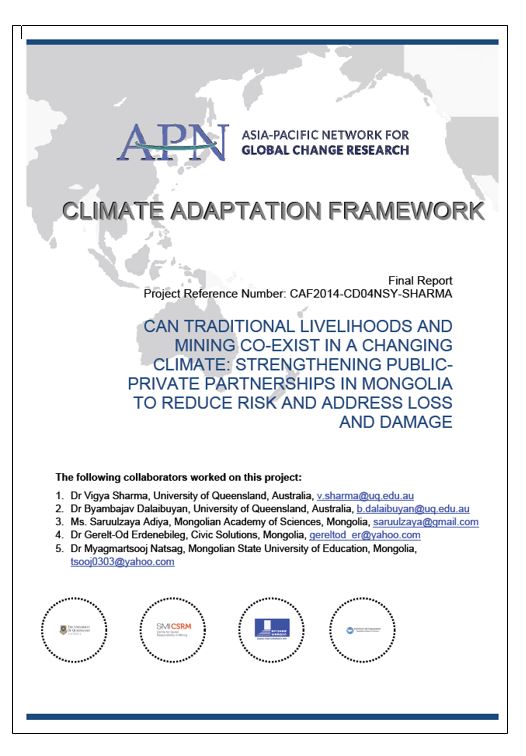Final report: can traditional livelihoods & mining co-exist in a changing climate
From the perspective of Mongolia's long-term sustainability, both herding and mining compete over access to key natural resources such as land and water. In a changing climate, these resources are going to be further stressed; in the absence of a robust response mechanism, this may lead to greater conflicts between Mongolia's two primary economic enterprises. This research project proposed to address how mining and herding may identify synergies to coexist in a changing climate. It was founded on the premise that while the herders maintain generations of rich traditional knowledge about local climate patterns, topography, past natural disasters and local nuances of animal husbandry, mining companies are well resourced and have access to the latest technology and R&D. Together they can work towards building a Mongolia that is more resilient to climatic perturbations and resulting Loss and Damage. The project undertook three capacity-building workshops in Mongolia to explore the potential of public-private-civil society partnerships to address and better manage future climate risks. The workshops focused on understanding how climatic changes impacted both herding and mining - although in varied forms - and how each economic sector could leverage their resources to devise actions, strategies and tools that may help build their capacities and boost resilience to tackle changing climatic conditions.
Publisher: Asia-Pacific Network for Global Change Research
Region: Mongolia
Type: Report

